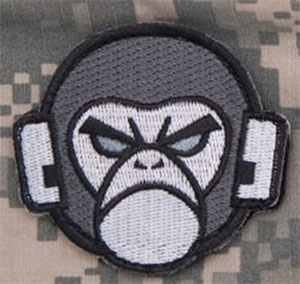“Call of Duty’s” Trademark Use Protected by First Amendment
Get Legal Help Today
Find the right lawyer for your legal issue.
Secured with SHA-256 Encryption
Mary Martin
Published Legal Expert
Mary Martin has been a legal writer and editor for over 20 years, responsible for ensuring that content is straightforward, correct, and helpful for the consumer. In addition, she worked on writing monthly newsletter columns for media, lawyers, and consumers. Ms. Martin also has experience with internal staff and HR operations. Mary was employed for almost 30 years by the nationwide legal publi...
Published Legal Expert
UPDATED: Jul 16, 2021
It’s all about you. We want to help you make the right legal decisions.
We strive to help you make confident insurance and legal decisions. Finding trusted and reliable insurance quotes and legal advice should be easy. This doesn’t influence our content. Our opinions are our own.
Editorial Guidelines: We are a free online resource for anyone interested in learning more about legal topics and insurance. Our goal is to be an objective, third-party resource for everything legal and insurance related. We update our site regularly, and all content is reviewed by experts.
UPDATED: Jul 16, 2021
It’s all about you. We want to help you make the right legal decisions.
We strive to help you make confident insurance and legal decisions. Finding trusted and reliable insurance quotes and legal advice should be easy. This doesn’t influence our content. Our opinions are our own.
On This Page
A California federal judge has ruled that the use of a trademarked military patch in the video game “Call of Duty” was protected speech under the First Amendment.
Plaintiff MilSpec Monkey, Inc. (“MSM”) had sued Activision, alleging. Among other claims, that that the use of an “angry monkey” patch in “Call of Duty: Ghosts” violated MSM’s trademark rights and copyrights.
Background

The morale patches are often worn in an unofficial context. One such MSM morale patch is the “angry monkey,” shown here. The design is the official logo of MSM, as well as being one of its most popular patches, and is registered with the US Patent and Trademark Office.
Activision designs and publishes video games, included the “Call of Duty” series. The “Call of Duty” games allow a player to take on the identity of a soldier and fight other players or opponents generated by the game.
“Ghosts” was released in 2013 as the 10th installment in the series. The main protagonists are US Special Ops personnel.
The premise of the game is that following a nuclear war in the Middle East, oil-producing nations in the Americas have banded together in an alliance that poses a global threat. The game includes versions of real-life weapons and military vehicles that players can customize.
The game also includes names and insignias of real-life government entities such as the US Marine Corps, the US Air Force, and the National Security Agency.
Players can also customize their avatars from menus of options that include gender, uniform style, accessories, gear, and over 600 uniform patches. Thirty-two of the patches are standard, and more become unlocked as in-game rewards. The angry monkey patches are among the initial 32.
MSM alleged that Activision “willfully” used the angry monkey mark to confuse or deceive consumers as to the source of the design, and thus take advantage of MSM’s brand and its relationship with consumers.
Activision countered that its use of the mark was protected by the First Amendment.
Analysis
The district court noted that, under the US Supreme Court’s 2011 decision in Brown v. Entertainment Merchants Association, video games are a form of “speech” protected by the First Amendment.
As the Supreme Court said in Brown,
Like the protected books, plays, and movies that preceded them, video games communicate ideas—and even social messages—through many familiar literary devices (such as characters, dialogue, plot, and music) and through features distinctive to the medium (such as the player’s interaction with the virtual world). That suffices to confer First Amendment protection . . .
The district court noted that a trademark doesn’t have to be a “cultural icon” (like Barbie) when it comes to fair use in a work protected by the First Amendment.
In the Ninth Circuit (which includes California), the use of a trademark that would otherwise violate the federal Lanham Act (which governs trademarks) is permitted unless:
- the use of the mark has “no artistic relevance to the underlying work whatsoever,”
- or it has some artistic relevance, but “explicitly misleads as to the source or the content of the work.”
The court concluded that the use of the angry monkey patch “bears ‘some artistic relevance’ to the creators’ goal of offering players a feeling of personal identity and authenticity during game play.”
The court also concluded that:
An instance where the sole indication that the plaintiff might be affiliated with the defendant’s work is the use of the mark itself is not “explicitly misleading.”
Use of Third-Party Trademarks
If you’re considering using another party’s trademarks in a game, app, advertisement, or other context, it’s a good idea to consult a trademark attorney to make sure that your proposed use is legal.
Find the right lawyer for your legal issue.
Secured with SHA-256 Encryption
Mary Martin
Published Legal Expert
Mary Martin has been a legal writer and editor for over 20 years, responsible for ensuring that content is straightforward, correct, and helpful for the consumer. In addition, she worked on writing monthly newsletter columns for media, lawyers, and consumers. Ms. Martin also has experience with internal staff and HR operations. Mary was employed for almost 30 years by the nationwide legal publi...
Published Legal Expert
Editorial Guidelines: We are a free online resource for anyone interested in learning more about legal topics and insurance. Our goal is to be an objective, third-party resource for everything legal and insurance related. We update our site regularly, and all content is reviewed by experts.
